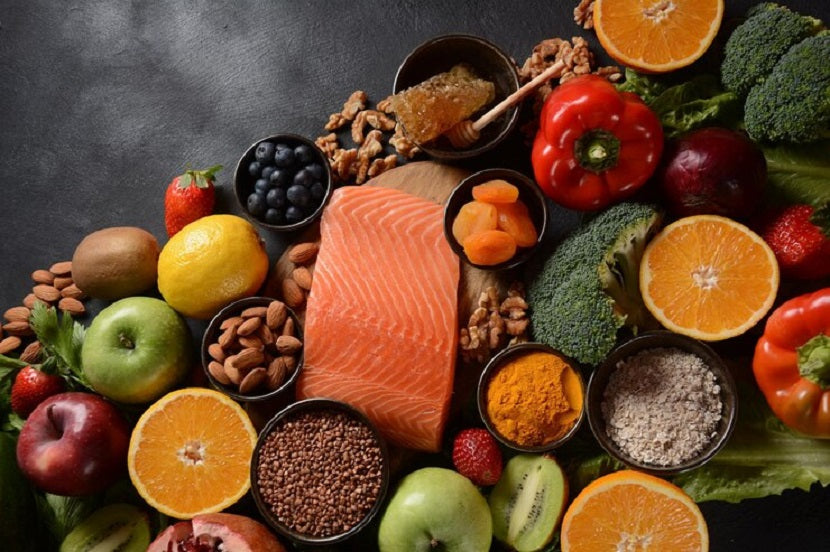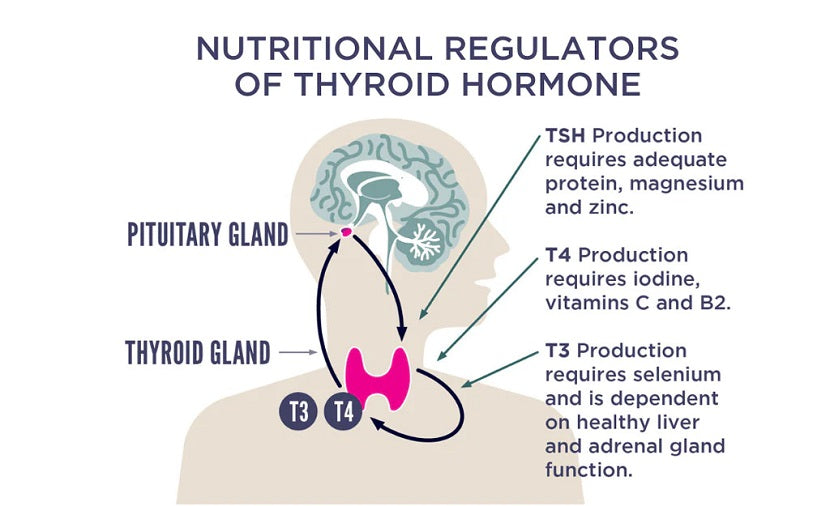Good nutrition is key to our health. We need the right amount of wholesome food in the same way a car needs the right fuel to run efficiently. An easy way to ensure that you're eating the right quantities of everything is to start with the following method – balance each meal in terms of your macronutrients. This means servings of carbohydrates, proteins, and fats are to be included on your plate.
Knowing what your macronutrients are will not only help you create healthy meals at home but also allow you to zero in on your best choices when eating out. Let's talk about macronutrients in more depth.
FATS
Let’s first clear any confusion about fats, oils, and cholesterol.
The most important aspect to remember in all nutritional information is that 'processing' is critical. What we do to food before consuming it is the major determining factor of its effect on the body. The general rule is that the more processed a food is, the further it is from how nature intended it to be consumed. As a result, the harder it is for our bodies to assimilate it.
Go for fats in their simplest, raw form.
Any fat that has been treated with high to super-high heat oxidises and becomes dangerous to consume. Many chemicals such as trans-fats and acrylamide are produced through heating.

Natural fats are an important part of our diet and key for hormone production. Don’t be scared to eat them – just ensure they're high quality. Remember that weight gain is not a calorie issue but rather an endocrine issue.
Next, always be conscious of where you source your food. Consuming meat and seafood products that have been farmed commercially isn’t healthy. These animals are subjected to a range of growth-promoting compounds and their fats are not healthy fats. They create inflammation and hormonal imbalances and can lead to heart disease and cancer. Good fats, on the other hand, protect against each of these conditions.
As for cholesterol, it’s only a cause for concern when combined with obesity, stress, and blood sugar issues. Cholesterol actually serves a hugely positive role in the body, without which we wouldn’t be able to make various essential hormones.
Best sources of fats
- avocados
- raw and soaked nuts and seeds
- cold-pressed oils
- organic free-range eggs and poultry
- organic grass-fed butter and meats
- fermented dairy
- sustainable wild-caught seafood
What is a serving size?
- ⅓ of an avocado
- Two free-range eggs
- 1 tbsp of cold-pressed oil
- A handful of nuts
- 100gm of wild-caught salmon or free-range chicken
- 1 tbsp of nut butter
Aim for a few serves a day in addition to what you use for cooking.
CARBOHYDRATES
Carbohydrates are your friend. Whole, unprocessed carbs are good when consumed in moderation. Refined carbohydrates and simple sugars, on the other hand, are bad for you. They’re nutrient-dead, deprive us of essential B vitamins and lead us into a vicious cycle of cravings that can result in poor sugar metabolism, insulin resistance and weight gain. Sugar is actually one of the main causes of heart disease and high cholesterol. When eating carbs, the best way to maintain stable blood sugar is to combine them with proteins and fats.
When most people think about carbohydrates, they’re inclined to bread, grains and legumes. They forget that vegetables and fruits are also carbs.
It’s ok to limit or avoid glutinous grains but never forget the importance of seasonal, colourful vegetables. The issues with grains and legumes usually arise from poor digestion and problems with digestion are often the result of stress and a history of too many refined, poor-quality grains in bread, flours, pastries, pizzas and pasta.

Whole grains and legumes provide carbohydrates for energy production and many natural chemicals and food sources for your microbiome (gut bacteria) which heal and protect the gut.
Best sources of carbohydrates
Some fruits and vegetables are more starchy in nature and higher in carbohydrates like:
- potatoes
- pumpkin
- beetroot
- carrots
- sweet potato
- parsnips
- bananas
- dates
On the other hand, other veggies such as leafy greens, eggplant, mushrooms, broccoli, cauliflower, zucchini, and cucumber are significantly lower in carbs.
What is a serving size?
- ½ cup grains or legumes
- 1-2 slices sourdough or sprouted bread
- 1 cup potato, sweet potato, peas, corn, beetroot, parsnips, carrots, potato, or pumpkin
Special notes:
- For fruits, have a maximum of 2 serves per day and opt for low sugar varieties.
- For non-starchy carbs, 5-7 cups a day is ideal.
- For starchy carbs, have 1- 2 serves daily at maximum (unless your exercise regimen calls for more energy).
PROTEIN
It's not uncommon in today's fitness culture to have the mindset that the more protein you eat, the more muscle you develop. This is a falsehood for two reasons. First, excess protein intake puts a strain on your kidneys and may lead to autoimmune issues. Secondly, we have only so many channels in our gut through which protein can enter our bloodstream, so choosing to have eggs, bacon and a protein shake for breakfast is not necessary.

If choosing animal proteins, remember that meats are acidic in nature. Consume them in moderation – never more than 100 grams in a sitting and always source free-range, grass-fed and organic when possible. Keep in mind that commercial meats come with issues regarding antibiotics and growth enhancers.
Best sources of protein
- seafood (always choose wild-caught and sustainable where possible)
- eggs (free-range, organic)
- tempeh (non-GM, organic)
- legumes
- nuts and seeds
- vegan or grass-fed protein powders
- poultry
- meats
(Note: You'll also get some protein from grains.)
What is a serving size?
Aim for 1gm per kilogram of ideal body weight per day. (i.e. If you weigh 70kg, then you need 70gm of protein daily.)
Here is the approximate amount of protein in certain foods:
- 100g of seafood, poultry, meats or tempeh = 20 to 25g
- two eggs = 16g
- a handful of nuts and seeds = 8g
- small tub of yoghurt = 10g
- ½ cup of lentils = 10g
What about dairy as a protein source?
Dairy is inflammatory, mucus-forming and difficult to digest for many. There are superior ways to get enough protein but if you enjoy dairy, the key is to source only fermented options such as kefir and yoghurt or buffalo, goat or sheep over cow dairy as these tend to be more easily digested.

Summary
In conclusion, the takeaway from this article for you is that quality food in the right quantities is of utmost importance. Each macronutrient has an important function in the body and whilst many fad diets severely restrict or even eliminate certain macronutrients, each of them has a vital purpose and should never be avoided.
Once you've learnt how to balance your macronutrients, take the step to include healthy choices within each group. Choose fats in their natural state, grass-fed, organic, free-range or plant-based proteins and complex carbohydrates to improve your health and maintain wellness.








Leave a comment
This site is protected by hCaptcha and the hCaptcha Privacy Policy and Terms of Service apply.